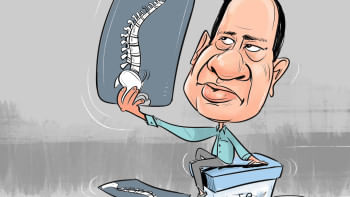Will EC dialogues ever be more than just glorified tea parties?

When a political party in Bangladesh decides to have a dialogue with the Election Commission (EC), what do they expect? Do they want the commission to take their suggestions into account and act accordingly? Do they join these dialogues just to show people that they are active? Or is it because they want to have it on record that they made a suggestion to the election authority about how the elections should be administered?
In all honesty, the EC of yore (starting in 1991, barring the EC of 2006, until 2008) never really needed these dialogues. Firstly, because they (apart from the 2006 elections) had "non-partisan" ad hoc governments to back them. Secondly, national elections were pretty much a straightforward affair: the incumbent would step down and hand the ruling duties over to temporary/caretaker governments, who would hold the election via the EC.
However, things changed after the Awami League-led government abolished the caretaker government system in 2011 out of fear of a repetition of 1/11. Since then, all elections (both national and local) have been held under partisan administrations, and in the process, the Awami League, who is now in its 14th consecutive year in power, has managed to establish a seemingly unassailable monopoly over state power. As a result, every election since then have followed crises of varying magnitudes, with most of the frontline opposition parties predictably boycotting the elections.
In 2006, the BNP tried to do the same thing. They didn't abolish the caretaker government system, but tried to hold the parliamentary election with some manipulations, including a faulty voters' list. They tried to hold the election but could not, because the Awami League and other like-minded parties waged a serious and strategic protest (both on and off the streets) to create enough pressure on the BNP to step down.
In fact, the Awami League has a glorious history – older than Bangladesh – of waging street movements to put pressure on governments and press home their demands. This means that their leadership and policymakers have the experience of enduring state-backed oppression to come out successful with street protests.
The BNP and its allies (especially Jamaat-e-Islami, most of whose top leaders have now been executed for 1971 war crimes) made a total mess out of it when they tried to take a leaf out of their arch-rival's book.
Just like the Awami League did in 2006, the BNP and its allies also tried to wage street protests in 2014 to prevent the Awami League from holding elections. However, the BNP leadership's lack of experience in holding peaceful street movements only led to uncontrollable violence on the streets and a massive loss of lives and properties.
So, it seems that most of the political parties in Bangladesh basically want the Election Commission to fulfil their long-standing demand for a non-partisan, poll-time government, instead of taking the difficult route of building up a political movement to create pressure on the government.
Why do they really want the EC to do their "dirty" work? Is it because these parties don't have the same amounts of resources and political expertise as the Awami League to wage a serious street movement? Is it because they have seen how BNP's street protests have gone wrong and how the mistakes are now coming back to haunt them? Is that why these parties are not too keen about "wasting" scarce resources?
Given the experiences of the 2014 and 2018 elections, in which the BNP and its like-minded parties gave the Awami League a walkover, and the subordinate role that the then ECs played, it's funny that these political parties still hope that the EC would be able to fulfil their needs. Interestingly, the BNP seems to be quite sure that what the EC is doing through these dialogues is just "window dressing," and so they never take part in any of them. What makes these dialogues and the participation of some parties even funnier is the fact that the Election Commission has literally no history of even officially disclosing the recommendations that they receive in these "dialogues," let alone implementing them.
Although the current EC is yet to unveil the recommendations from the recent dialogues, the word going round in Bangladesh's political circuit is that the parties (including Jatiya Party, a recent former ally of Awami League, now the main opposition in parliament) mainly asked the EC for two things: election under a non-partisan government, and no use of electronic voting machines (EVMs). So, why does the EC never publish these recommendations? There is one obvious answer to this question: the commission may feel that they have to make some kind of visible effort to address the concerns raised if they make the recommendations public. Recent history tells us that the EC does not have the power or the intention to do any such thing. Therefore, it seems that the EC dialogues with the country's political parties will continue to be glorified "tea parties," and every election will continue to be a political crisis for the foreseeable future.
Mohammad Al-Masum Molla is deputy chief reporter at The Daily Star.

 For all latest news, follow The Daily Star's Google News channel.
For all latest news, follow The Daily Star's Google News channel. 







Comments